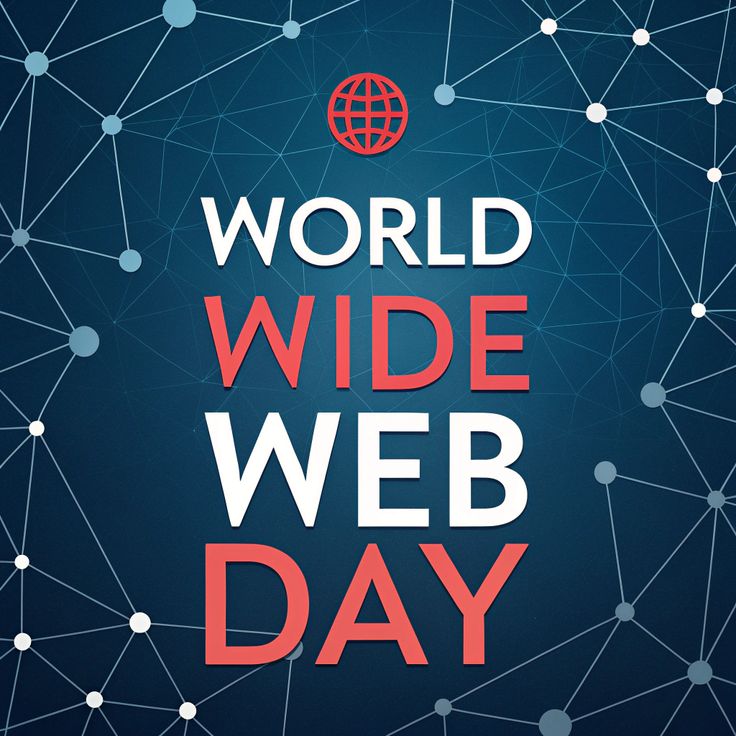Powerful Reasons Why World Wide Web Day 2025 Is a Game-Changer for Our Digital Future
In a world where the internet connects over 5 billion people, World Wide Web Day, celebrated on August 1st every year, serves as a global celebration of the invention that revolutionized human communication, learning, and life itself.
- 🌐 What is World Wide Web Day?
- 🕰️ History of the World Wide Web
- 📅 Timeline of Key Web Milestones
- 💡 11 Powerful Facts About the World Wide Web
- 🔍 Significance of World Wide Web Day
- 🚀 Unprecedented Access to Knowledge
- 🌍 Global Connectivity
- 👥 Democratization of Voice
- 💸 Economic Opportunities
- 💞 Emotional Bridges
- 🙋 Frequently Asked Questions (FAQs)
- ❓ What’s the difference between the Web and the Internet?
- ❓ Who invented the World Wide Web?
- ❓ What is Web 3.0?
- ❓ How does the web impact daily life?
- ❓ How can I observe World Wide Web Day?
- 🎉 How is World Wide Web Day Celebrated?
- 💬 Heartfelt Wishing Messages for World Wide Web Day
- 🧠 Important Points to Remember
- 🌱 Why It’s Important in Our Daily Lives
- 🛑 The Other Side: Dangers to Address
- 🌟 Conclusion: A Celebration Beyond Technology
The World Wide Web (WWW) has not only changed how we access information—it has changed how we live, love, work, protest, educate, entertain, and dream.
This article dives into everything you need to know about World Wide Web Day 2025—including its history, timeline, facts, FAQs, significance, observance, emotional connection, and daily life impact, written in a warm, human-centric tone.
🌐 What is World Wide Web Day?
World Wide Web Day is an international observance that celebrates the invention of the web and honors the genius behind it—Sir Tim Berners-Lee. It’s a day to reflect on how far we’ve come in terms of connectivity, and how we can use the internet responsibly and inclusively for future generations.
🕰️ History of the World Wide Web
1989: British scientist Tim Berners-Lee proposed an information management system while working at CERN (European Organization for Nuclear Research).
1990: The first web page and web server were developed.
1991: The World Wide Web became publicly available.
1993: The first graphical browser, Mosaic, made the web more accessible.
1995–2005: Web 1.0 transitioned to Web 2.0—interactive platforms, blogs, and social networks.
2020–2025: Discussions of Web 3.0 and the decentralized web began gaining mainstream traction.
The exact origin of World Wide Web Day as a celebration is uncertain, but it is widely observed on August 1st each year by tech communities, educational institutions, and internet users worldwide.
📅 Timeline of Key Web Milestones
| Year | Event |
|---|---|
| 1989 | Tim Berners-Lee’s web proposal |
| 1991 | First public website goes live |
| 1993 | Mosaic browser launch |
| 1998 | Google is founded |
| 2004 | Facebook launched |
| 2007 | iPhone is released—web goes mobile |
| 2020 | Global internet users cross 4.5 billion |
| 2025 | AI and Web3 integration in mainstream web use |
💡 11 Powerful Facts About the World Wide Web
Over 1.1 billion websites exist today, though not all are active.
The first-ever website is still online: info.cern.ch.
Google processes over 8.5 billion searches per day.
The term “surfing the web” was coined in 1992 by librarian Jean Armour Polly.
E-commerce sales are expected to reach $6.5 trillion in 2025.
India has the second-largest internet user base, just behind China.
Over 90% of youth globally use the web daily.
The web played a critical role in global movements like #MeToo, Arab Spring, and Black Lives Matter.
Remote work owes its existence to the web.
Online education surged by over 300% post-2020.
Tim Berners-Lee didn’t patent the World Wide Web—he gave it free to humanity.
🔍 Significance of World Wide Web Day
🚀 Unprecedented Access to Knowledge
From Wikipedia to YouTube, knowledge is just a few clicks away—something unimaginable just 30 years ago.
🌍 Global Connectivity
It allows people from remote villages to bustling cities to communicate, learn, and build careers globally.
👥 Democratization of Voice
Whether it’s through blogs, social media, or video content, the web gives everyone a platform.
💸 Economic Opportunities
The web created entire industries: freelancing, content creation, digital marketing, e-commerce, and more.
💞 Emotional Bridges
From long-distance relationships to online communities, the web brings people closer—beyond borders.
🙋 Frequently Asked Questions (FAQs)
❓ What’s the difference between the Web and the Internet?
The internet is the network of computers; the World Wide Web is a system of linked documents and media accessible through the internet using browsers.
❓ Who invented the World Wide Web?
Sir Tim Berners-Lee, a British computer scientist, invented it in 1989.
❓ What is Web 3.0?
Web 3.0 refers to the next phase of internet evolution, focusing on decentralization, blockchain, and user ownership of data.
❓ How does the web impact daily life?
From banking and communication to education and healthcare, the web touches nearly every aspect of modern living.
❓ How can I observe World Wide Web Day?
Learn about digital literacy and privacy.
Share your web journey using #WorldWideWebDay.
Help others (especially elders or children) understand safe internet usage.
Celebrate ethical and responsible use of the web.
🎉 How is World Wide Web Day Celebrated?
Online:
Twitter/X and Instagram campaigns with web memories.
Tech bloggers release “Web Journey” retrospectives.
Startups and platforms run digital discounts and giveaways.
Educational Institutions:
Workshops on cybersecurity, web development, and online research.
Essay writing competitions on “The Internet and Me.”
By Individuals:
Sharing favorite websites from the past.
Cleaning up old digital footprints.
Reconnecting with old online friends.
💬 Heartfelt Wishing Messages for World Wide Web Day
“Happy World Wide Web Day! Here’s to the invention that gave us memes, dreams, and teams across oceans.”
“From dial-up tones to fiber optics, the web has brought the world to our fingertips. Let’s use it wisely.”
“May your bandwidth be strong and your privacy stronger. Celebrate responsibly!”
“Let’s honor Sir Tim Berners-Lee by making the web a safer, kinder, and more open space for all.”
🧠 Important Points to Remember
The web is free to use but not free from responsibility.
Digital literacy is as crucial today as reading and writing.
The web should be a tool for empowerment, not exploitation.
Access to the internet should be a right, not a privilege.
The next billion users will shape how the web evolves.
🌱 Why It’s Important in Our Daily Lives
🧑🎓 For Students:
E-learning, online tutorials, virtual labs, and research journals make learning more inclusive and accessible.
🧑💼 For Professionals:
Remote work, project collaboration, and skill-building platforms like Coursera, Upwork, or LinkedIn Learning.
👨👩👧👦 For Families:
Easy access to entertainment, education, shopping, financial services—all made possible by the web.
👴 For Elders:
Staying connected with family through video calls, digital payments, or just reading the news online.
🙋♀️ For Society:
The web supports civic participation, awareness movements, and helps amplify marginalized voices.
🛑 The Other Side: Dangers to Address
Cyberbullying, identity theft, misinformation, and addictive behavior.
Digital divide between urban and rural, rich and poor.
Privacy concerns due to surveillance capitalism.
That’s why digital ethics, cyber hygiene, and open access to the web are crucial topics of conversation every World Wide Web Day.
🌟 Conclusion: A Celebration Beyond Technology
World Wide Web Day 2025 is a day to honor a technology that has transformed our jobs, emotions, societies, and future. It’s a time to reflect on how the web connects us—not just technically, but humanly.
Let’s use this day to:
Celebrate its power,
Respect its dangers,
Share its benefits, and
Reimagine its future—for all.
🌈 Final Message:
“The World Wide Web is humanity’s largest shared creation. Let’s cherish it, protect it, and use it to build a more informed, united, and compassionate world.”








